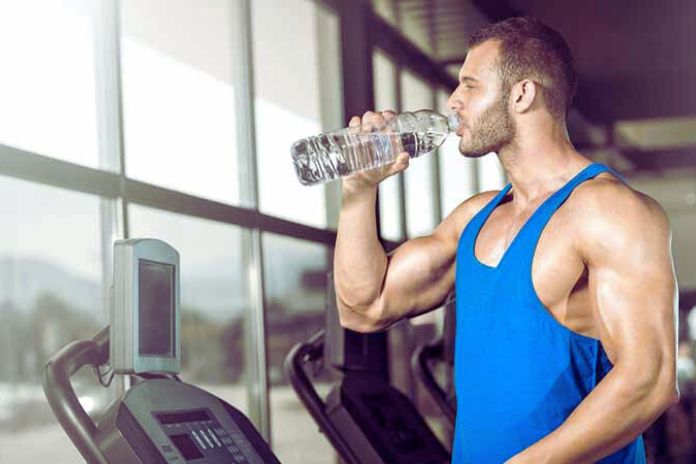Staying hydrated in any situation is essential, but discussing physical activity becomes even more critical.
Practising physical activities cause the human body to increase in temperature. To defend against this elevation and carry out adequate thermoregulation, it is necessary to eliminate liquid through sweat. For this reason, correct hydration is considered fundamental for us to perform satisfactorily during exercise, as well as to prevent the undesirable and unpleasant effects caused by dehydration, such for example tachycardia, increased blood pressure, cramps, damage to organs and, in particular, some extreme cases, impaired brain function and heat shock.
With that in mind, it is essential to stay hydrated before starting physical activity. But how to do it? Start by drinking 400 to 600 milliliters of water 2 to 3 hours before exercise, and about 30 minutes before that, drink another 200 milliliters. Water replacement should be done immediately after exercise; experts suggest about 300 milliliters every 15 minutes of activities. The total volume of water should preferably be replaced within 2 hours after the end.
Below we separate some of the most famous statements regarding hydration during the period of physical activity, clarifying what is true and what is false:
Thirst During Physical Activities Should Not Be Taken Into Account
Myth. The Biology Sports study compared voluntary water consumption during physical activities with programmed consumption, which could only be done at predetermined intervals. Despite voluntary consumption having presented a better performance in the practitioners of exercises who participated in the research, it was concluded that, in situations where dehydration is likely, drinking according to the recommendations, regardless of the presence of the sign of thirst, is an excellent measure to protect individuals from the effects caused by dehydration.
Water Is The Best Form Of Hydration During Physical Activity
It depends on the case. Studies show that, especially in cases of extreme intensity, such as professional athletes in training and subjected to high temperatures, water is not always the best water resource to be used by practitioners of physical activities since weather conditions can influence the state of hydration, it is essential to analyze which liquid is best suited to that practice – such as isotonic and sports drinks, for example. However, as a rule, amateur athletes are very well supplied if they consume the ideal amount of water during their weekly exercises.
Frequent Sweating Is A Symptom Of Dehydration
True. The body’s dehydration mechanism is mainly due to sweat in athletes who perform long-lasting physical activities, such as marathons, triathlons or even Ultraman events. It is possible for a human being to lose up to two litres per hour, always considering factors such as environmental conditions, physical conditioning, acclimatization, degree of intensity of effort and exposure time.
Dehydration In Athletes Causes Future Problems
True. A study published in the Brazilian Journal of Sports Medicine shows mild and moderate dehydration causes signs such as fatigue, loss of appetite, thirst, red skin, heat intolerance, dizziness and increased urine concentration. On the other hand, severe dehydration results in dry and withered skin, sunken eyes, blurred vision, delirium, muscle spasms, heat shock and coma, and may progress to death.
Losing Weight Is A Sign That The Body Is Dehydrated
Myth. Long-lasting physical activities do not always result in total weight loss reflecting the proper degree of dehydration, as changes in the athlete’s body mass represent a sum of water losses and non-water sources. Among the latter, one should mainly consider weight loss due to elements that help preserve satisfactory blood glucose levels.
As crucial as drinking the right amount of liquid before, during and after physical activity is ensuring that your water is good quality.
Also Read: Drinking Water Is Essential For The Functioning Of The Body

